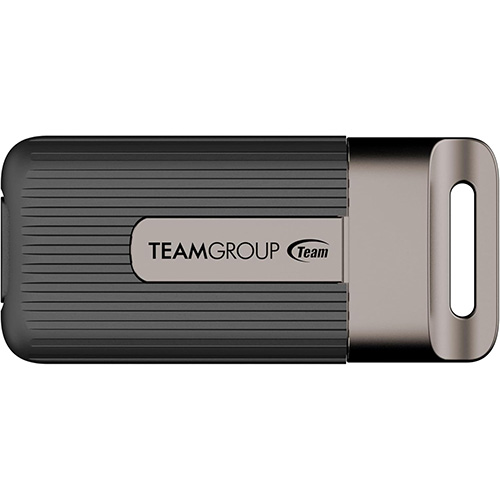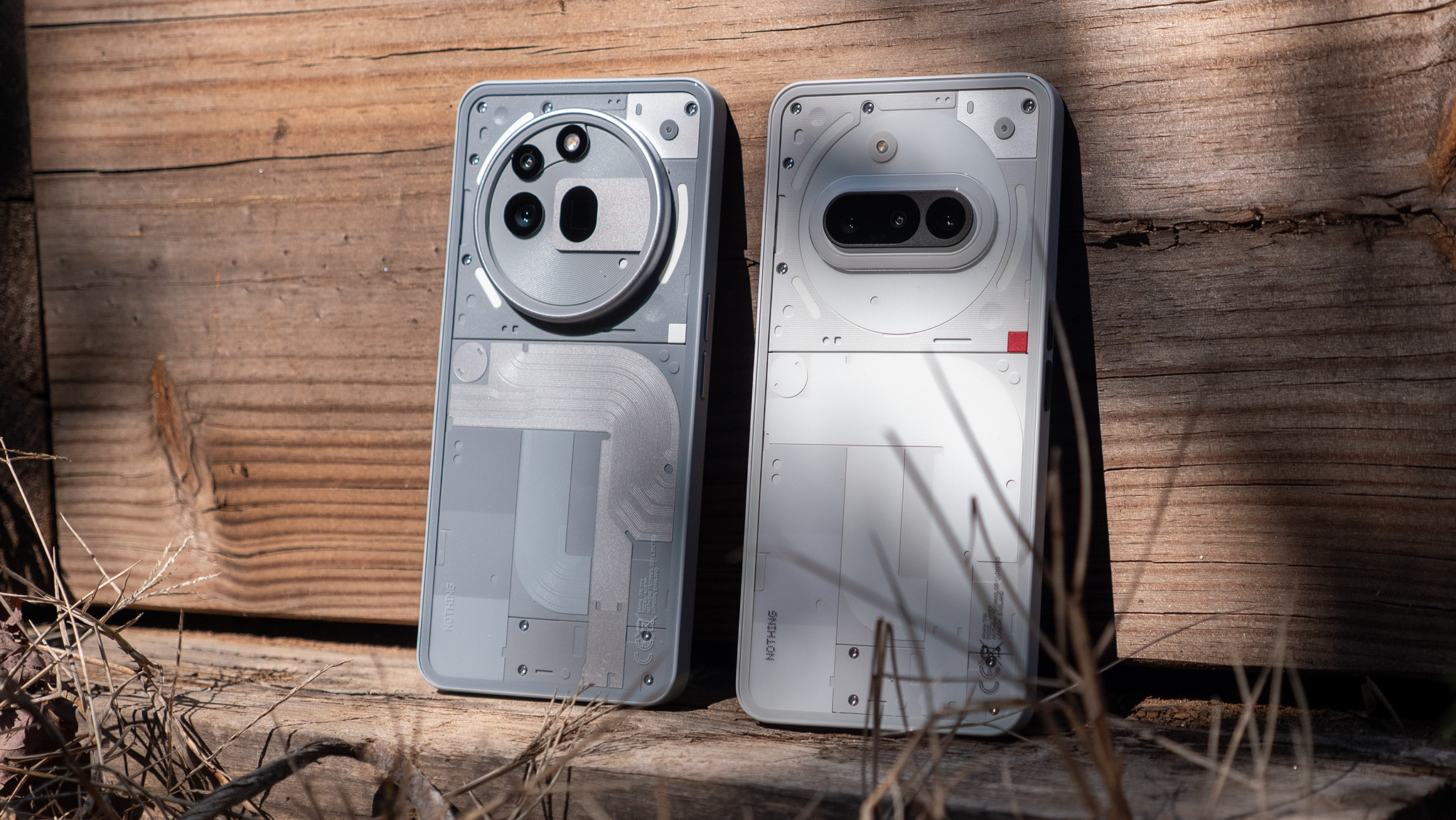TeamGroup's PD20 is a portable SSD with a difference
This diminutive SSD goes up to 4TB and has blazing-fast transfers.
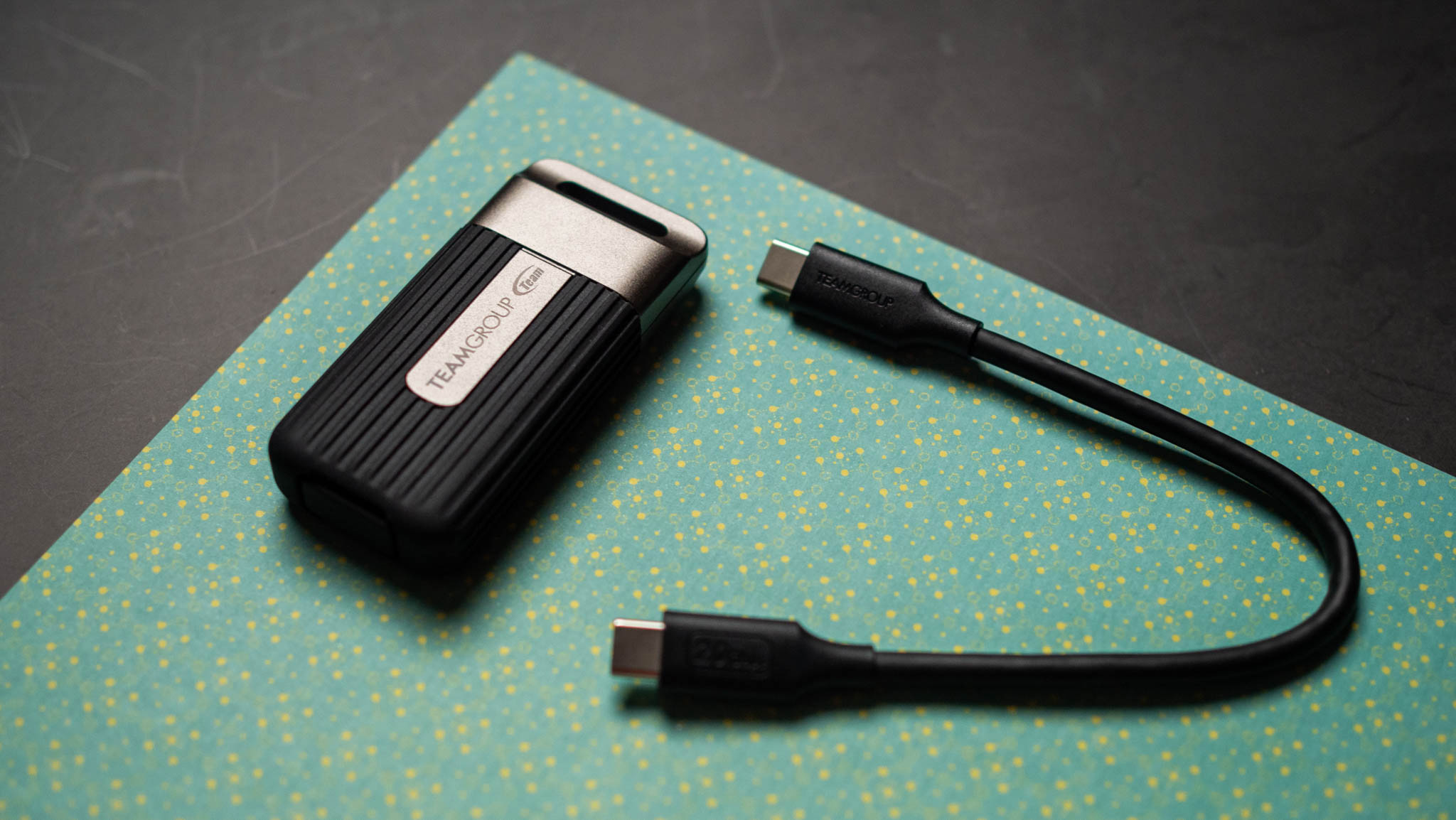
Get the latest news from Android Central, your trusted companion in the world of Android
You are now subscribed
Your newsletter sign-up was successful
Most of my data is stored on various NAS servers — I have a DiskStation DS1823xs+ and DS1621xs+ — but lately, I've gotten used to having a few external SSDs on hand to move photos and store vital data. External SSDs have gotten much better in recent years, and I prefer using LaCie's Rugged SSD4 at my desk and have the Thunderbolt 5-enabled Rugged Pro5 in the bag if I need additional storage on the go.
In addition to LaCie's drives, I have the TeamGroup X1 Max; I used this stick SSD for well over a year now, and its versatile design means it always stays in my tech bag. With USB-C and USB-A connectors, it's just easy to connect it to just about any device. TeamGroup now has a new external SSD dubbed the PD20, and it's designed to look similar to traditional portable SSDs.
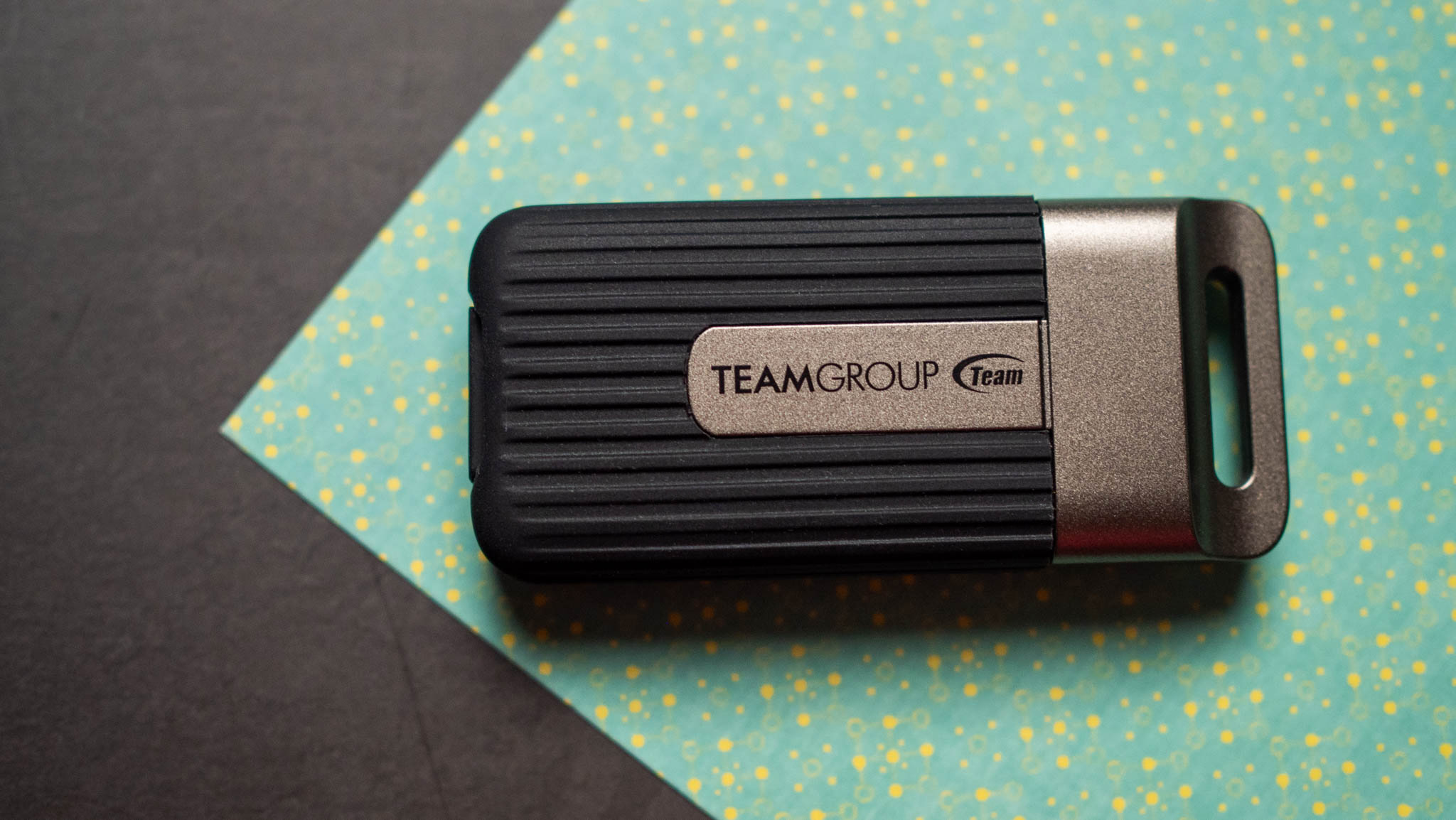
It has similar dimensions as Seagate's One Touch SSD, and weighs just 22g — it's small and light enough that you can take it anywhere. It's available in a 1TB model that costs $95 on Amazon, and a 2TB version that's $150. I have the 4TB model, and that retails for $277. That's broadly similar to what you'd pay for most portable SSDs, and the advantage with the PD20 is that you get a 2,000MB/s bandwidth — double that of Samsung's T7.
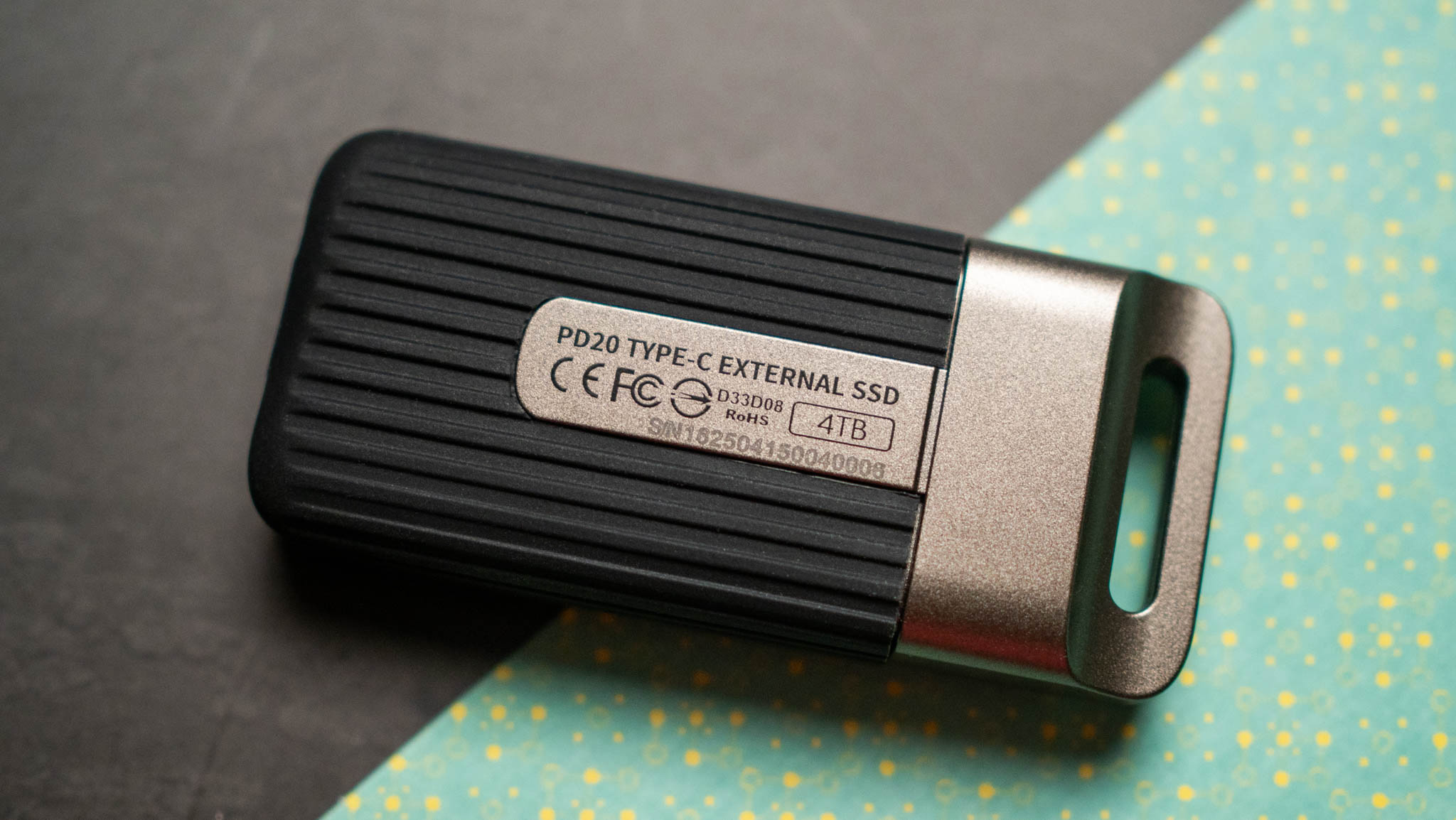
TeamGroup also has a generous five-year standard warranty, and I like that about the brand. Okay, let's talk about the SSD itself. The PD20 is designed to be portable, and it fits into a pocket with ease. The hanging hole design means you can attach it to your bag, and the aluminum chassis is designed to be durable. The PD20 gets a pre-installed silicone case as an added source of protection, and it doubles as a cover for the USB-C port.
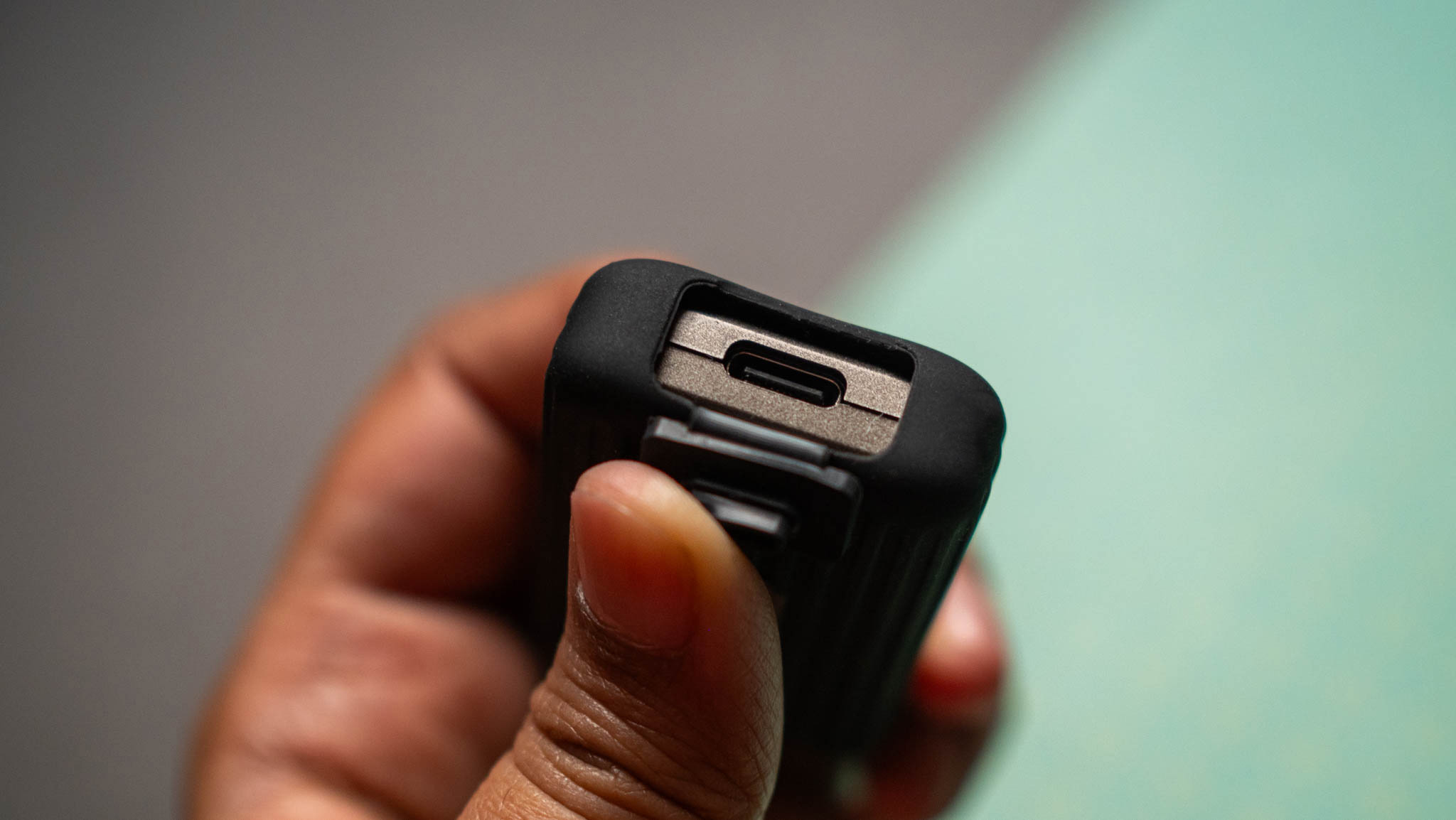
The PD20 is clearly built to last; I used it for the better part of four months, and it's pristine. I have no doubt that it will hold up just as well in long-term use as the X1 Max and other external SSDs I have. It gets IP54 dust and water resistance as well (provided the USB-C cover is closed), so it should weather any spills without issues.
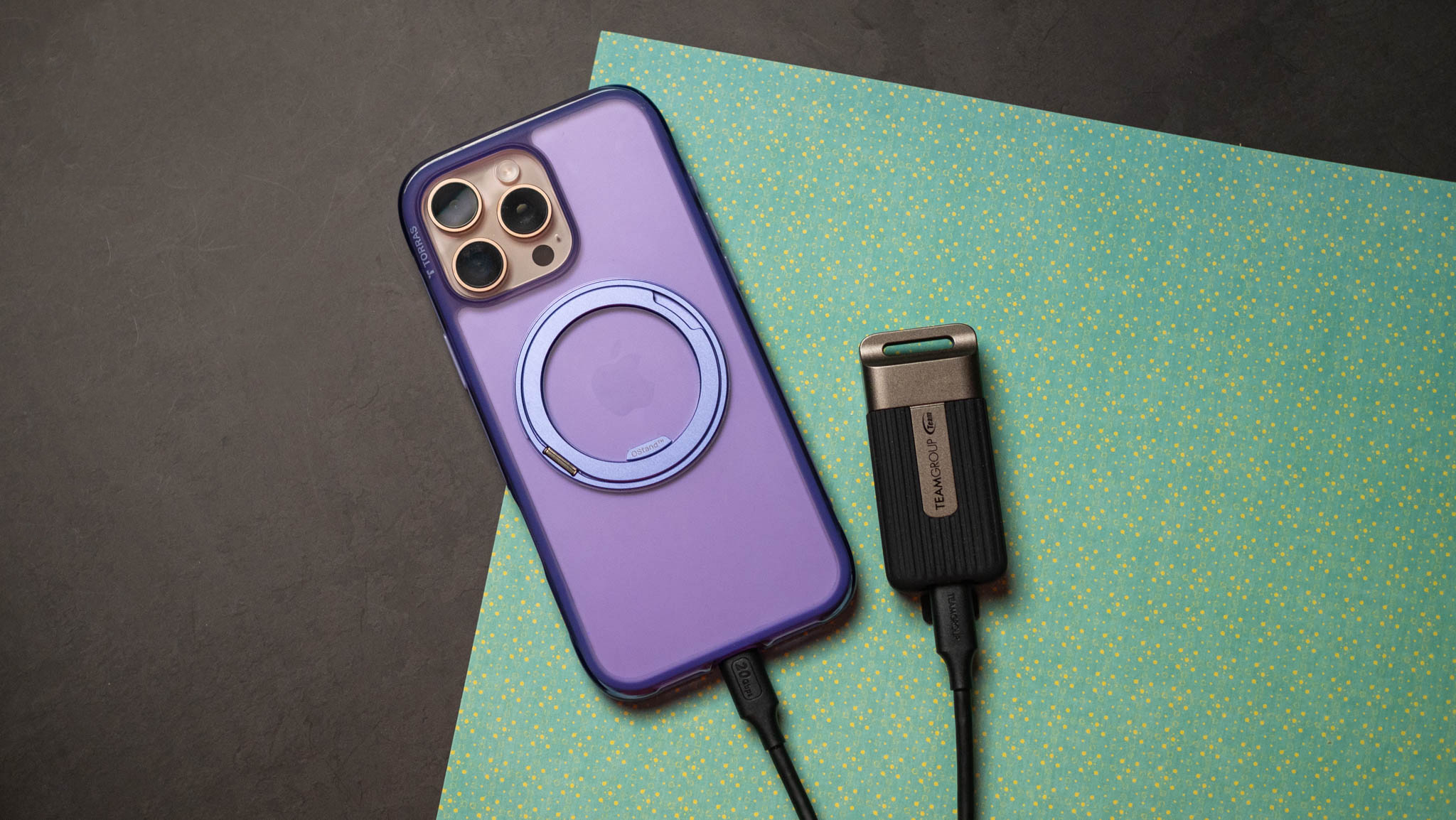
A big selling point of the PD20 is that it connects via the USB 3.2 Gen2x2 standard, offering double the bandwidth of most external SSDs. I used Crucial's X10 Pro quite a bit in the last two years, and like the PD20, that drive also uses the same standard, and the only downside is that not all Windows machines can leverage the additional bandwidth.
TeamGroup touts 2,000MB/s bandwidth, and in my testing, I saw reads of 1,800MB/s and writes of 1,630MB/s, with the drive outmatching the X10 Pro. Basically, outside of LaCie's rugged drives, the PD20 is the fastest SSD I tested, and it doesn't cost anywhere as much. In fact, it is at the lower end of the scale when it comes to Gen 2x2 SSDs, and that alone makes it worthy of consideration.
Get the latest news from Android Central, your trusted companion in the world of Android
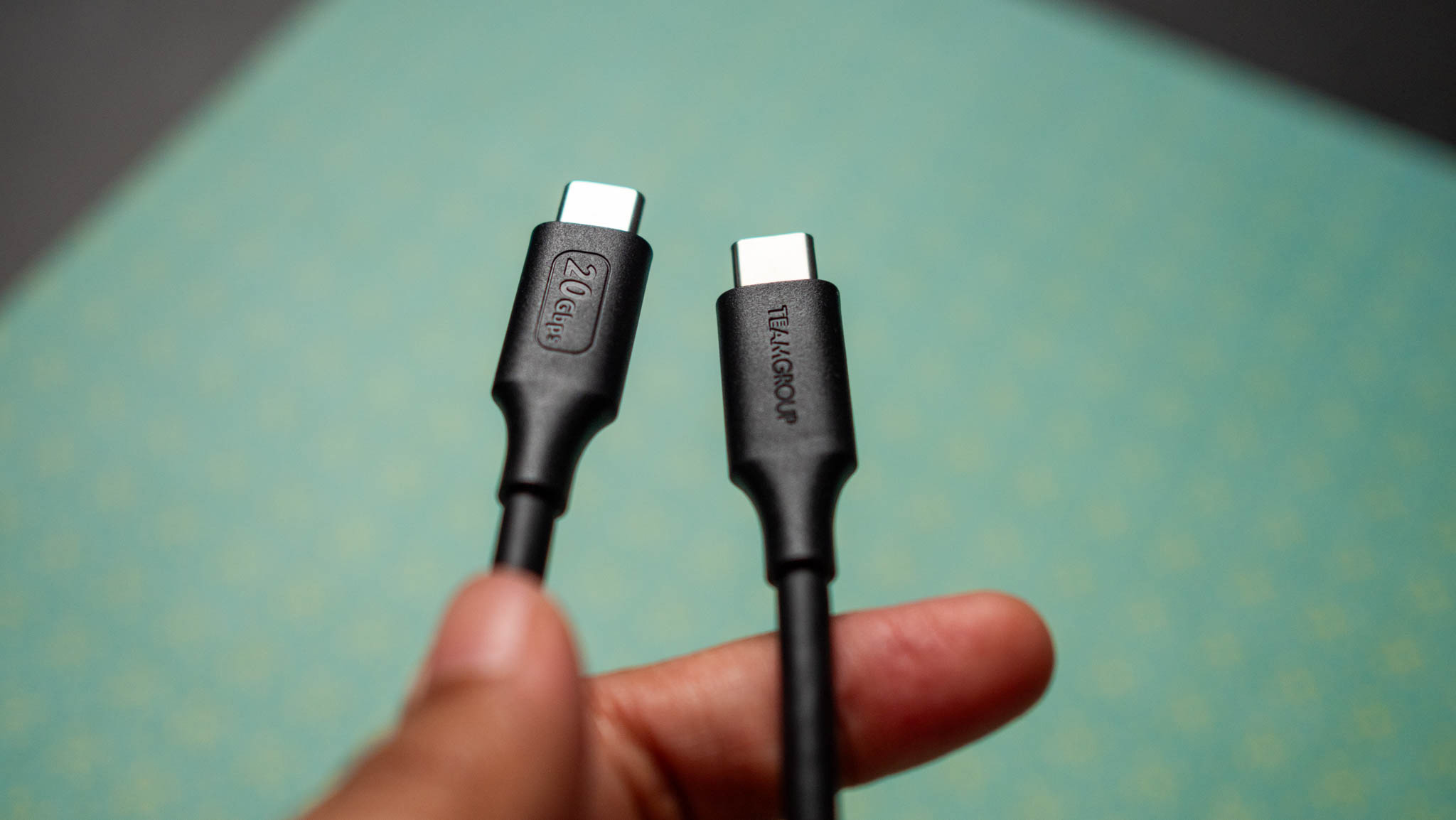
I would have liked a built-in USB-C cable as I tend to lose these tiny cables that are bundled with the drive, but other than that, I didn't see any issues with the PD20. I used it with my Windows machine, Pixel 10 Pro XL, and iPhone 17 Pro among other devices, and I didn't see any problems.
Ultimately, the PD20 is an easy sell; it is one of the fastest external SSDs I've used, and it is small and light enough that you can take it anywhere with ease. The value on offer is the icing on the cake.

Harish Jonnalagadda is Android Central's Senior Editor overseeing mobile coverage. In his current role, he leads the site's coverage of Chinese phone brands, networking products, and AV gear. He has been testing phones for over a decade, and has extensive experience in mobile hardware and the global semiconductor industry. Contact him on Twitter at @chunkynerd.
You must confirm your public display name before commenting
Please logout and then login again, you will then be prompted to enter your display name.
